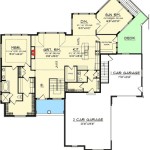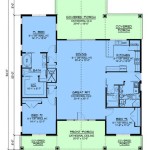Adding a Bedroom to Your Basement: Essential Considerations
Transforming your basement into a comfortable and functional living space can be an excellent way to add value to your home and enhance your family's quality of life. One of the most common ways to utilize basement space is to create a cozy and private bedroom. However, adding a bedroom to your basement involves several crucial aspects that require careful planning and consideration.
1. Building Codes and Permits
Before embarking on your basement bedroom project, it is essential to consult your local building codes and obtain the necessary permits. These codes regulate various aspects of construction, such as egress requirements, ceiling height, and ventilation. Failing to adhere to building codes can result in safety hazards and legal consequences.
2. Egress and Safety
Ensuring proper egress and safety is paramount in any basement bedroom. According to most building codes, a basement bedroom must have at least one egress window or door directly leading to the outside. This egress point must meet specific size and height requirements to allow for safe exit in an emergency.
3. Ceiling Height and Lighting
To create a habitable and comfortable basement bedroom, it is crucial to ensure adequate ceiling height and natural lighting. The minimum recommended ceiling height for a basement bedroom is 7 feet. Adequate natural light can be achieved by installing large windows or a combination of windows and skylights.
4. Ventilation and Moisture Control
Basements are prone to moisture and humidity issues. To create a healthy and comfortable living environment, proper ventilation and moisture control measures are essential. Installing a mechanical exhaust fan and dehumidifier can help regulate humidity levels and prevent mold growth.
5. Insulation and Soundproofing
Insulating the basement walls and ceiling can significantly improve the temperature regulation and energy efficiency of your basement bedroom. Adequate insulation also helps reduce noise transmission from other areas of the house or external sources.
6. Electrical and Plumbing
Adding a bedroom to your basement may require additional electrical and plumbing work. Installing proper lighting, outlets, and switches is essential, as is running new plumbing lines for any sinks or toilets in the bedroom.
7. Flooring and Finishes
When choosing flooring for your basement bedroom, opt for moisture-resistant materials such as vinyl, laminate, or ceramic tile. Avoid using carpet, as it can trap moisture and lead to mold growth. Wall finishes should also be resistant to moisture, such as paint with a moisture-resistant primer.
Adding a bedroom to your basement can be a rewarding and valuable project when done correctly. By addressing these essential aspects, you can create a comfortable, safe, and livable space that will enhance the functionality and value of your home.

How To Make A Basement Bedroom Legal Building Bluebird

9 Easy Bedroom Basement Ideas Design Tips

Does A Bedroom Basement Add Value Pre Sale Home Updates

9 Expert Tips For Creating A Basement Bedroom

Bedroom In The Basement Project Costs Renovations Simply Additions

9 Expert Tips For Creating A Basement Bedroom

Before And After S Finishing A Basement Bedroom

9 Easy Bedroom Basement Ideas Design Tips

9 Easy Bedroom Basement Ideas Design Tips

Bedroom In The Basement Project Costs Renovations Simply Additions
See Also








